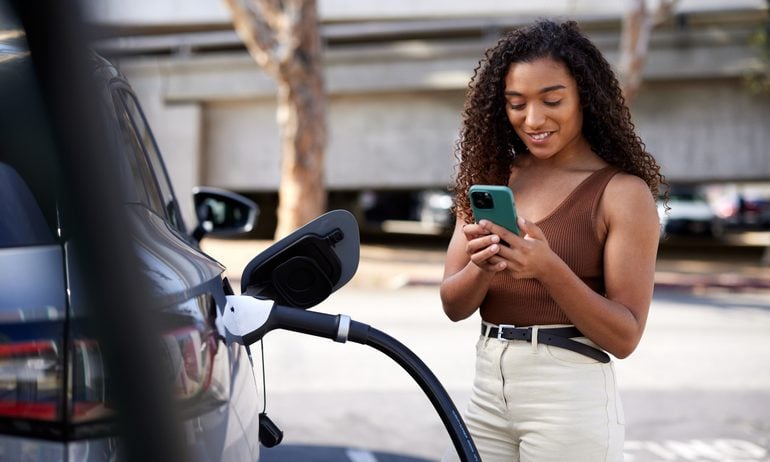How Long Do Electric Car Batteries Last?
Early usage data and manufacturer warranties point to EV batteries lasting a decade or more, and certain steps can extend EV battery life.

Many, or all, of the products featured on this page are from our advertising partners who compensate us when you take certain actions on our website or click to take an action on their website. However, this does not influence our evaluations. Our opinions are our own. Here is a list of our partners and here's how we make money.
Since most electric vehicles have been in use for only several years, a long history of battery performance and longevity doesn’t exist. However, with more than 3 million EVs now registered in the U.S., one fact is emerging — few EV batteries are needing replacement and most are still going strong in the original vehicle.
A 2023 report from Recurrent — a company that tracks and provides real-world usage data from a community of about 15,000 plug-in EVs — shows that only about 225 (1.5%) of batteries in the study group have needed replacement due to failure. This percentage doesn’t include batteries replaced due to recalls.
Another often-referenced study by the U.S. Department of Energy predicts EV batteries will last up to 15 years or 200,000 miles in moderate climates. However, that study is now a decade old, and auto manufacturers have improved EV batteries in that time, with some now saying EV batteries will last 20 years.
Auto manufacturer confidence in EV battery lifespan is reflected in the typical battery warranty now offered of 8 years or 100,000 miles, with some carmakers providing longer warranties. For example, EV manufacturer Rivian’s battery warranty is up to 150,000 or 175,000 miles, depending on vehicle type.
Explore the auto-buying platforms from our partners below.
AD
Some EV batteries last longer than others
Sandy Munro, CEO of automotive consulting firm Munro & Associates and host of the popular YouTube channel Munro Live, says batteries can easily last longer than 100,000 miles, though how much longer depends on battery construction which differs by EV make and model. Munro says Tesla batteries — which have a longer track record than other EVs — could reasonably be expected to last between 300,000 and 500,000 miles.
Munro adds that expectations will change as battery technology evolves, too. “The next-generation batteries are going to be sensational,” says Munro. He says he expects the next generation of EV batteries, still a few years away, to include solid-state batteries, which will push the upper limit even farther.
» MORE: Should I buy an EV?
How to make your EV battery last longer
Most all-electric vehicles use lithium-ion batteries — the same technology that powers laptops and cell phones — although EV versions are more complex and designed to last much longer.
Lithium-ion batteries are suitable for use in EVs because, in comparison to other types of batteries, they charge faster, hold a charge longer and have a longer lifespan. However, much like your phone battery, EV batteries degrade over time losing some efficiency and affecting your vehicle’s range as it ages.
The good news is that according to the Recurrent report, most degradation occurs within the first 20,000 to 40,000 miles and then levels off. Also, there are steps you can take to maintain the health and longevity of your EV’s battery.
Use battery fast charging sparingly. The fastest chargers, called Level 3 or DC fast charging, can add hundreds of miles of range in a matter of minutes. While convenient, this can strain a car’s battery if used too often, so reserve this option for road trips and stick to at-home Level 2 charging (or Level 1) for routine charges.
Keep your battery 20-80% charged. Letting your battery drop to 0 or keeping it at 100% can reduce longevity. The American Automobile Association (AAA) recommends keeping your EV battery charged within a threshold of 20% to 80%.
Be mindful of temperature. The lithium-ion batteries found in most EVs perform best when not exposed to extreme heat or cold. In freezing temperatures, EV batteries start to lose battery range, although cold doesn’t cause long-term damage to the battery. On the other hand, high temperatures can cause permanent damage to an EV battery. An EV’s thermal management system works to keep battery temperature in an optimal range, but it pulls energy from the battery to maintain temperature when the EV isn’t plugged in. For that reason, if temperatures are very hot or cold when your EV is parked, it’s best to make sure it’s plugged in. When it’s cold, park in a garage, if possible. When it’s hot, park in the shade or a garage, and delay charging until later at night when temperatures drop.
Read your EV owner’s manual. All EVs aren’t the same and neither are their batteries. Take time to read your owner’s manual to see if there is battery care guidance that’s specific to your EV.
The cost to replace an electric car battery ranges from $5,000 to about $20,000, which can be a significant portion of an EV’s total value. But, early information indicates — with the proper care — most EV batteries should outlive their warranties and the original EV owner’s need for replacement.












